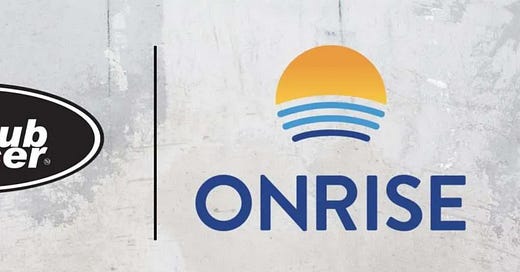Editor’s Note (Oct. 30, 2023): This article was submitted by Onrise, which US Club Soccer has partnered with for ongoing educational resources related to mental health.
Every team, every child, every parent and every coaching style is unique. Use methods in this article that match your style and add them to your toolkit. Losses will come; we just have to be prepared for how to respond.
Let’s start with a coach’s perspective. Coaches: you are steering the ship of your team. You create the narrative that your team will walk away with. While this may seem like a small coaching moment, these lessons learned from tough losses can stick with athletes forever. After a tough loss, take a moment to maintain a normal post-game response. Cool down as usual, thank the fans as usual, and stretch as usual. When you speak to your athletes, acknowledge what you are proud of. Be sure to choose a few non-performance based wins, such as exemplary leadership, grit or sportsmanship. Allow your team to share any reflections they have or want to share. When closing out, be sure to help your team channel disappointment into determination; mistakes are learning experiences. Be sure to follow up with an email when you have had time to reflect on the game or watch the film. At the end of the day, you are the adult guiding this team; be a model.
Parents: we know this can be a difficult spot for you, as well. Of course, we love to watch our children win games; it’s so fun! But how should you respond if and when they do not win? When your child walks over, remain neutral. If you usually give them a hug or a high five, do that! Try to remain neutral until you get to the car. When you’re there, ask how they’re feeling. Be sure to acknowledge your child’s feelings or disappointments. Try to actively validate their feelings without judgment. Active validation can sound like, “that sounds really frustrating” or “I can understand why you’re feeling that way.” Non-verbal active validation is important, too. Try maintaining eye contact, reflecting what they’re saying in your facial expressions or putting a comforting hand on their shoulder. If they’re in the mood to talk about it, ask about the coaches’ messaging. If the messaging was positive, such as “turning disappointment into determination,” then mirror this messaging, as well. Additionally, allow your child space and time to be upset. This is natural and normal.
Now, for a medical perspective from Dr. Brenda McBride, Chief Medical Officer at Onrise: “One of the greatest gifts a parents can give children is teaching them to navigate tough situations with positivity and grace. Adverse events cause a spike in cortisol and an imbalance in brain chemicals that modulate mood. The more tools they have to help remain even-tempered (or quickly return to an even-tempered state after an acceptable period of anger and disappointment), the less depression and anxiety will ensue, and they will be able to think and perform better all around.”
Athletes: It’s your turn. Losses happen! When they do, you must have a toolkit ready to deal with them. Using healthy strategies not only makes you a better athlete but creates a toolkit you can use for all disappointing moments in your life. Older athletes: you never know who is watching your game. When I was a sophomore in high school, I played against a team and the ending of the game turned really aggressive. Most of our teammates didn’t want to shake hands, but a couple of us did. Turns out, the other head coach’s hand I was shaking would be my college coach two years later. Sportsmanship, leadership and your response to a loss can get you much further than a win can. College coaches are looking for resilience in players; they are looking for athletes who will mesh well with their team.
As the saying goes: “Life is not about how many times you fall down, it’s about how many times you get back up.”
No matter how talented you are, if your attitude isn’t right, a coach will choose the player with the better attitude over you. In your toolbox, place a set of positive mental self-talk phrases. Use this loss as an opportunity for growth. Ask your coach if you can watch the tape. When you are finished watching, journal about your performance and be sure to include the positive aspects of the game. Once you are finished writing about it, move on. Being hung up on a loss won’t help you get ready for the next game. Channel your disappointment into determination and know that a loss does not define you.
ABOUT ONRISE
Onrise is a compassionate player care and mental health company. We are a place where retired athletes and clinicians unite to revolutionize athlete mental health care. At Onrise, we believe that everyone needs efficient strategies to cope with mental challenges both on and off the field. From game day to a big test day, our mission is to ensure that athletes have access to high-quality athlete to athlete support, therapy, and psychiatric care, regardless of their circumstances. Check out our website for more information.
ABOUT US CLUB SOCCER
A National Association member of the U.S. Soccer Federation, US Club Soccer fosters the growth and development of soccer clubs in order to create the best possible environment for players of all ages.
Anchored by Players First and its five pillars of Club Development, Coaching Development, Player Development, Parent Engagement & Education and Player Health & Safety, US Club Soccer offers registration, league- and cup-based competition platforms, player identification and a variety of other programming, resources and services.
US Club Soccer is sponsored by Nike, DICK'S Sporting Goods and Gatorade.





![Breanda-Headshot[97] Breanda-Headshot[97]](https://substackcdn.com/image/fetch/$s_!WrYc!,w_1456,c_limit,f_auto,q_auto:good,fl_progressive:steep/https%3A%2F%2Fsubstack-post-media.s3.amazonaws.com%2Fpublic%2Fimages%2Fca1f8e6d-5544-4b2f-8041-22556a327db3_150x195.png)